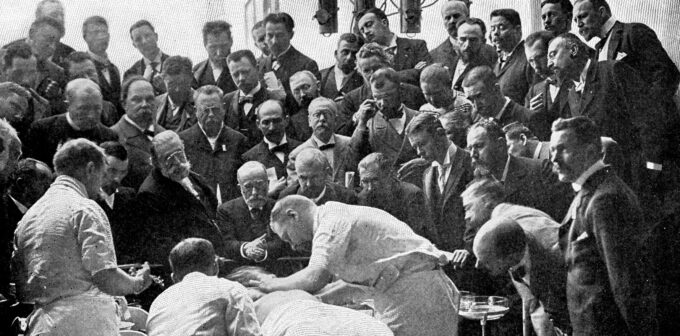Hip replacements, autism diagnoses and menopause will be on the table for the newly convened National Women’s Health Advisory Council.
A new supergroup of women’s health experts has just hit the ground, with some familiar faces on board.
Assistant Minister for Health and Aged Care and former nurse Ged Kearney announced the line-up of the National Women’s Health Advisory Council, which brings together representatives from 16 organisations representing women in the health and medical research field.
There are a further 14 special advisors from various other industry organisations, and Ms Kearney will chair the council.
All council members and representatives are women, bar Royal Australian and New Zealand College of Obstetricians and Gynaecologists president Dr Benjamin Bopp.
“[The initiative] is about recognising that for too long … from research, through to timely diagnosis, appropriate treatment and access to care, women have been at a disadvantage,” said council member and AMA vice president Dr Danielle McMullen.
In her clinical role, Dr McMullen said she sees the way that the commonly accepted understanding of certain conditions can put women at a disadvantage.
“Women present differently with health conditions and it can sometimes be tricky to identify and explore those, particularly things like heart disease that have quite a different presentation in women,” she told Oncology Republic.
Medical textbooks tend to present white males as the standard anatomy, and research trials have historically focused on male participants.
“Our training just doesn’t let us understand that women present differently,” Dr McMullen said.
“We need to address that right from that earliest level of research, and then also translate that into clinical guidelines so that women can get the care they need.”
Dr Higgins said the way women are treated when they present with pain is a prime example of how medicine has traditionally used male bodies and experiences as a default.
“Women are more likely, the evidence shows, to have pain addressed a mental health issue versus as a physical health issue,” she told Oncology Republic.
This can take the shape of a doctor repeatedly questioning whether a woman’s report of pain could in fact be related to anxiety.
“We need to look at how we frame our approach, and have a look at our biases and how this affects the way we deliver care,” Dr Higgins said.
The council will have its first meeting on 20 February, at which the members will nail down priorities and scope.
While the focus will primarily be on the experiences of women as patients, Dr Higgins said she would be interested to delve deeper into the experiences of female clinicians.
“Women do longer and more complex consultations and they see more mental health consultations than their male colleagues, even though mental health is the most common presentation for both,” she said.
“They’re also more likely to see more children, more vulnerable patients, which are less rewarded through Medicare … hence [female doctors] earn less.”
The council will also look at health literacy for women, health workforce education and specific concerns like menopause, pelvic pain and reproductive health.


